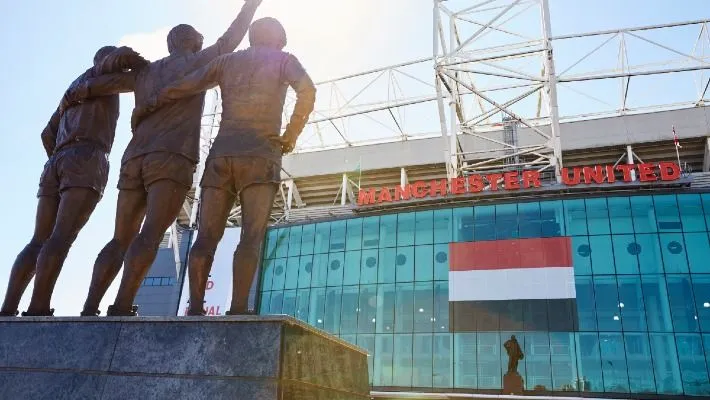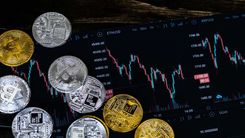Tuesday Jan 16 2024 04:32

7 min

Manchester United, one of the most iconic football clubs in the world, has not only captured the hearts of millions of fans but also attracted the attention of investors.
The club's share price has been a topic of interest for both football enthusiasts and financial analysts.
In this article, we will delve into the factors that influence Manchester United's share price, analyze its historical performance, explore the impact of key events on the stock, and provide insights into the prospects of investing in the club.
Manchester United's share price has experienced fluctuations over the years, reflecting the club's on-field performance, financial results, and broader market conditions.
Since its initial public offering (IPO) in 2012, the share price has seen both highs and lows. Initially priced at $14 per share, it reached a peak of $19.34 in 2014 before declining to around $12 in 2017. However, since then, it has shown a steady upward trend, reaching a high of $20.94 in early 2020.


Join the 100.000s that have made markets.com their home for trading. Learn about trading as you grow your portfolio.
More power in our platforms
We currently cannot accept clients from your country. If you have received this message in error, please contact our support team at support@markets.com.
Contact Support

Several factors influence Manchester United's share price. On-field performance is undoubtedly a significant driver. Success on the pitch, including winning domestic and international titles, tends to positively impact investor sentiment and drive up the share price. Conversely, poor performance can lead to a decline in share value.
Financial results also play a crucial role. Investors closely monitor the club's revenue streams, such as broadcasting rights, sponsorship deals, and matchday income. Strong financial performance, with increasing revenues and profits, can boost confidence in the club's ability to generate returns for shareholders.
Moreover, broader market conditions and investor sentiment towards the sports industry can affect Manchester United's share price. Economic factors, geopolitical events, and changes in consumer behaviour can all influence investor confidence and impact the stock market as a whole, including the share price of football clubs like Manchester United.
Key events, both on and off the field, have had a notable impact on Manchester United's share price. For instance, the appointment of a new manager or the signing of a star player can generate excitement among fans and investors alike, leading to an increase in share value. Conversely, controversies or negative publicity surrounding the club can harm the share price.
The COVID-19 pandemic has also significantly impacted Manchester United's share price, as it has for many other businesses. The suspension of football matches and the closure of stadiums resulted in a decline in matchday revenue.
This, coupled with uncertainties surrounding broadcasting rights and sponsorship deals, led to a temporary decrease in the share price. However, as the world gradually recovers from the pandemic, there is optimism that the club's financial performance will rebound, potentially driving the share price higher.

Looking ahead, Manchester United's share price is expected to be influenced by various factors. The club's ability to consistently perform well on the pitch and secure lucrative sponsorship deals will be crucial. Additionally, the successful implementation of digital strategies to engage with fans and monetize digital platforms could further enhance revenue streams and positively impact the share price.
Furthermore, the return of fans to stadiums following the pandemic will be closely watched by investors. Matchday revenue is a significant contributor to the club's financial performance, and a full return to normalcy in this regard could boost investor confidence.
It is worth noting that investing in individual stocks, including Manchester United, carries inherent risks. Share prices can be volatile, and past performance is not always indicative of future results. Investors should carefully consider their risk tolerance and conduct thorough research before making any investment decisions.
The stock price has remained relatively flat throughout the day, following a slight upward trend in the past few weeks.
Manchester United's share price is influenced by a variety of factors, including:
It is important to note that investing in any stock, including Manchester United, carries inherent risks. The share price can be volatile, and past performance is not always indicative of future results. Investors should carefully consider their risk tolerance and conduct thorough research before making any investment decisions.
Manchester United's share price is influenced by a myriad of factors, including on-field performance, financial results, broader market conditions, and key events. Understanding these dynamics is crucial for investors considering investing in the club.
While historical performance and key events have impacted the share price in the past, prospects will depend on the club's ability to maintain success on the pitch, secure revenue streams, and adapt to changing market conditions.
As with any investment, careful analysis and consideration of risks are essential when evaluating Manchester United's share price.
Learn and trade with market.com: The ultimate trading community.
“When considering “CFDs” for trading and price predictions, remember that trading CFDs involves a significant risk and could result in capital loss. Past performance is not indicative of any future results. This information is provided for informative purposes only and should not be considered investment advice.”
Asset List
View Full ListLatest
View all
Monday, 7 April 2025

5 min

Sunday, 6 April 2025

6 min

Sunday, 6 April 2025

6 min